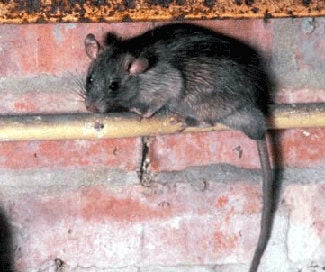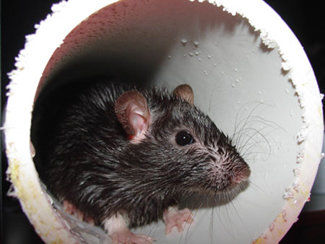The greater New Orleans area is no stranger to rodents, whether it is nutria swimming in the bayous or the small rat scurrying along Bourbon Street. Researchers are finding local rodents aren't just unpleasant -- they are likely carrying bacteria that could be harmful to dogs.
Rats in New Orleans are carrying pathogens that cause diseases like hantavirus and leptospirosis, according to the New Orleans Mosquito, Termite and Rodent Control Board, which monitors and controls local pests. Leptospirosis, in particular, is hard to detect, and can be deadly for dogs and other pets.
Michael Blum, an associate professor of ecology and evolutionary biology at Tulane University, said the prevalence of leptospira -- which causes leptospirosis -- in local rats is much higher than researchers expected to find.
Local rat populations are under increased scrutiny after reports this year that several dogs in New Jersey had contracted leptospirosis. At least three dogs died, while two others were infected by the disease, according to CBS News in March.
Experts have confirmed the presence of these pathogens in New Orleans rats, but it is unclear whether they are more prevalent now than they have been in the past.
Blum heads the New Orleans Rat Project, a Tulane-led effort to trap and study rodents across the city. The project is funded by a $1.4 million grant from the National Science Foundation.
He said available historical data on leptospira only goes back about four years. He noted research into these diseases began in earnest after levee breaks during Hurricane Katrina flooded most of the city.
Blum and his team are currently screening rodents citywide for leptospira and other bacteria. He said it will take "another couple of months" before specific numbers on the prevalence of rodents with the pathogens is available.
Claudia Riegel, director of the New Orleans Mosquito, Termite and Rodent Control Board, said it is possible local rats have been carrying these pathogens for some time, and we just did not know much about it.
"We don't think there's necessarily been a resurgence," Riegel said.
Even so, Riegel urged pet owners and others to be cautious.
She noted symptoms of leptospirosis can be easily mistaken for the common cold and flu, making it difficult for residents to know if they or their pets have been infected.
"It's very important for everyone to take it seriously," Riegel said, adding sanitation is the first step in preventing rodent-borne illness in people and pets.
Kelly Zimmerman, spokeswoman for the Louisiana Department of Health and Hospitals, said the state's Public Health Veterinarian has not seen an increase in rat-related illnesses. She added the Louisiana Animal Disease Diagnostic Laboratory at the LSU Vet School has yet to see an uptick in veterinary cases related to rodent-borne diseases.
Riegel stressed rodent control remains a top priority for the city. The New Orleans Rat Project, which the agency is involved with, helps the city perform the "very laborious" task of surveillance of rodent populations, she said.
Riegel said education -- in addition to trapping and removal -- is a big part of controlling the rat population. Because rats can produce dozens of offspring in a given month, the board spends parts of its time encouraging residents to seal holes, lay traps and take other steps to prevent rodents from finding places to breed.
She urged residents to look around their houses and yards for food and water sources that could attract rats, including fruit falling from trees and pools of water accumulating on or around objects left outside.
Rats also eat pet food. Riegel suggested storing pet food inside to reduce the risk of pets getting infected.
The Centers for Disease Control and Prevention advises residents to keep dogs and other pets away from water that might be contaminated with rat droppings.
The control board also recommends closing holes and cracks in buildings and along porches where rats can enter.
Residents are also advised to call 311 to report rodent issues.




